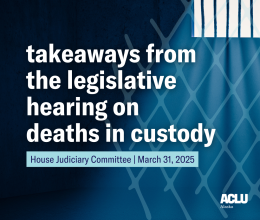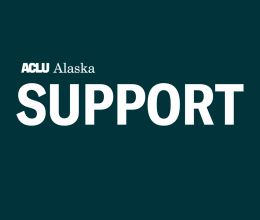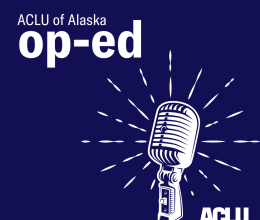
Every year during and after the Muslim holy month of Ramadan, the ACLU of Alaska receives reports from Muslim inmates that Alaska's Department of Corrections (DOC) fails to properly accommodate their Ramadan observance. The tenets of Islam require fasting from dawn to sunset for the entire month of Ramadan, which begins this year at sundown on February 28 and ends at sundown on March 30.
Under the First Amendment and the Religious Land Use and Institutionalized Persons Act, DOC must provide sufficient meals to incarcerated Alaskans observing Ramadan at the appropriate times. The Tenth Circuit Court of Appeals held that a prison’s failure to provide timely and sufficient Ramadan meals violated the First Amendment (Makin v. Colo. Dep’t of Corr., 183 F.3d 1205, 1211 (10th Cir. 1999)). The Ninth Circuit Court of Appeals held that a prison’s refusal to accommodate a Muslim inmate’s general dietary needs can violate the First Amendment (Shakur v. Schriro, 514 F.3d 878, 885 (9th Cir. 2008)).
DOC recognized its obligations to Muslim inmates in 2019. In the settlement agreement in Dowl & Jacobsson v. Williams, et al, DOC agreed to provide at least two hot meals between sunset and dawn to inmates observing Ramadan, consisting of at least 3000 average daily calories. The agreement requires DOC to keep a daily log of all Ramadan meals to ensure compliance and prohibits DOC from removing an inmate from the “Ramadan List” for any reason. But Muslim inmates report that, as recently as 2024, Ramadan meals were often insufficient, cold, and served hours after sunset. Last year, at Anchorage Correctional Complex, DOC removed inmates from the Ramadan List unless they agreed to move into protective custody for the entire month.
In 2023, the ACLU of Alaska filed a class-action lawsuit against the Department of Corrections on behalf of William ‘Jamal’ Gary, a practicing Muslim who has been in pre-trial custody at ACC since February 2022. ACC staff had refused him permission to wear his kufi, had refused to accommodate his prayer needs, and had made repeated anti-Muslim comments towards Mr. Gary. After filing the lawsuit, DOC changed its practices to accommodate Mr. Gary, and the lawsuit was dropped.
This year, we proactively sent DOC two demand letters (below) outlining our concerns with how it allows Muslim people in its custody to observe Ramadan.
Despite the 2019 settlement and the demand letters, the ACLU of Alaska has continued to receive reports from Muslim incarcerated people that DOC is not properly accommodating their Ramadan observance in violation of the 2019 agreement. On Wednesday, March 5th, 2025, we filed a motion to compel DOC to comply with a 2019 settlement agreement requiring DOC to allow incarcerated Muslims to observe Ramadan. Unfortunately, the motion was denied by the courts.
Throughout the month of March, the ACLU of Alaska's Prison Project will continue to monitor prisons and jails across the state to ensure that all Muslim people are allowed to fully observe their religious holiday. If you have a loved one who is having issues with practicing Ramadan while incarcerated in Alaska, please reach out to us.
With support from the Alaska Mental Health Trust Authority, the ACLU of Alaska has produced a Prisoner's Rights Guide for understanding religious freedom while incarcerated. This resources is available in English, Spanish, Korean, Russian and Central Yup'ik below.



